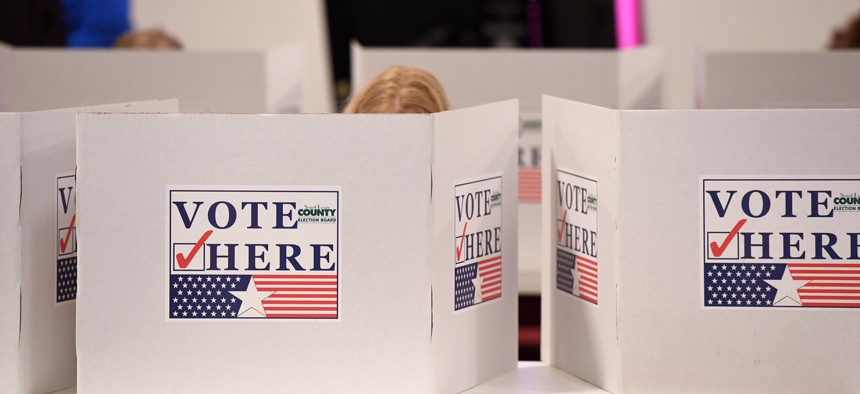Florida Lawmakers Look to Make Ex-Felons Pay Fines Before They Can Vote

Sixty-four percent of Florida voters approved a constitutional amendment restoring felons' voting rights. Shutterstock

Connecting state and local government leaders
The legislation comes months after voters overwhelmingly approved a measure restoring the voting rights of people convicted of felonies who have completed their sentences.
A Florida House committee this week approved a bill that places restrictions on the restoration of voting rights of people convicted of felonies, prompting an outcry from critics who say the legislation is an attempt to undercut a recently passed amendment to the state’s constitution.
“Although we are disappointed that PCB 19-03 passed the subcommittee, we are hopeful that the entire Florida legislature will respect the supermajority of voters of Florida who support restoring voting rights to people who have completed their sentences and reject this unnecessary bill,” Ashley Thomas, Florida state director of Fines and Fees Justice Center, said in a statement.
As written, the bill would require former felons to repay court fines and fees before being permitted to vote—even if those fees were not imposed by a judge as part of the sentence. Those conditions go beyond the text of Amendment 4 as passed by voters in November, which specified that most people convicted of felonies would get their voting rights restored after they had completed their sentences, including probation and parole. Backers had estimated that more than a million people would become eligible to vote under the provision.
Some supporters said they could understand including fines and restitution to victims as part of the sentence, but not court fees, according to the Tampa Bay Times. Others said it doesn't make sense to require any monetary obligations before allowing people to vote.
The bill passed the Florida House Subcommittee on Criminal Justice 10-5 along party lines, with all Democrats opposing the measure.
“It's not only targeting the poor and is targeting minorities, but it's blatantly unconstitutional as a poll tax," Democratic Rep. Adam Hattersley told the Sun-Sentinel. "The will of the voters is clear, and this bill is trying to circumvent that."
Republicans said the bill was meant to clarify certain provisions of the amendment before it takes effect, including which crimes qualify as sexual offenses. Ex-felons who committed those types of crimes are excluded from the amendment.
"When a petition process leads to a constitutional amendment, we as legislators do not have the luxury, the latitude or the freedom to play the 'what if' game, to play the 'edit the language' game," Republican Rep. James Grant said during a committee hearing.
The bill moves next to the full Republican-controlled House for approval. The Senate, also controlled by Republicans, is expected to prepare its own version of the legislation. Florida Gov. Ron DeSantis, a Republican, opposed the constitutional amendment and has in the past expressed support for legislation that outlines “implementation guidelines.”
Kate Elizabeth Queram is a Staff Correspondent for Route Fifty and is based in Washington, D.C.

NEXT STORY: FirstNet partners with medical center for rural emergency response




